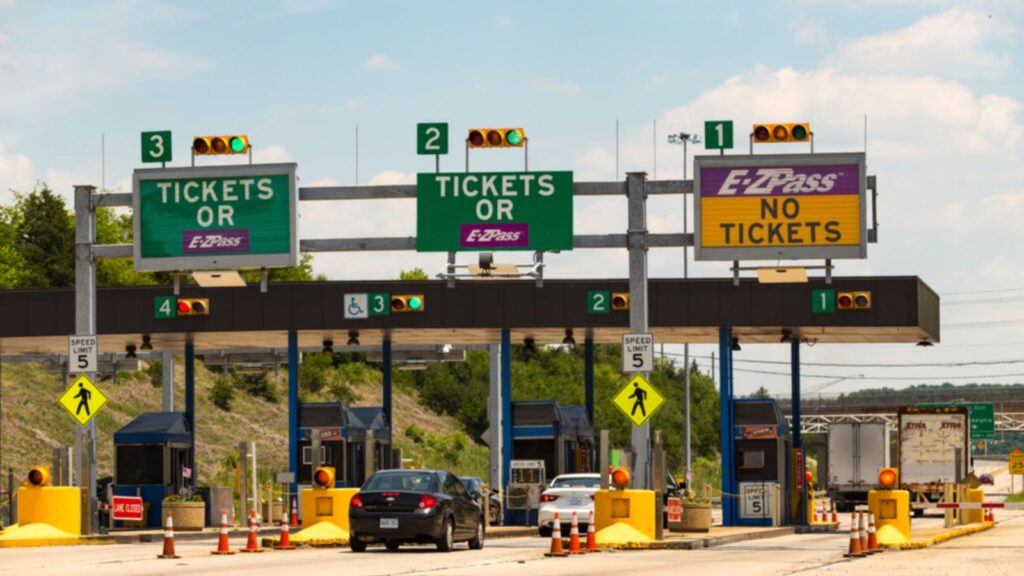Discovering a smooth, toll-free route during a road trip is like finding a hidden gem. Exploring the charm of US States Without Toll Roads can make your journey more budget-friendly and hassle-free. Join us as we uncover these states, offering travelers a seamless ride without toll charges.
Why do tolls exist?
Tolls collect fees from users accessing toll facilities, contributing to construction and maintenance funds. In contrast, taxpayer funds maintain free roads regardless of individual usage.
At times, tolls are limited to particular travel lanes, often created to alleviate congestion during peak travel periods. These lanes, requiring user payment, help save taxpayer money by transferring costs to users.

What are the 15 US States Without Toll Roads?
According to Uproad, the following 15 states don’t have toll roads:
- Arizona
- Arkansas
- Connecticut
- Hawaii
- Idaho
- Iowa
- Mississippi
- Montana
- Nevada
- New Mexico
- North Dakota
- South Dakota
- Tennessee
- Wisconsin
- Wyoming
That means 35 states have toll roads, although some feature just one, such as the following:
- Alaska
- Louisiana
- Minnesota
- Missouri
- Nebraska
- Oregon
- Rhode Island
- Utah
Additionally, certain states impose tolls exclusively on specific roadways. For instance, in Vermont, tolls are applied solely to roads reaching the state’s mountain summits. Alaska’s lone toll road segment traverses the Anton Anderson Memorial Tunnel.
Apart from roads, what other facilities implement tolls?
Motorists may encounter tolls on bridges, express lanes, turnpikes, and tunnels.
Drivers in the eastern U.S. are more likely to confront tolls, with Florida leading in numbers—having 12 toll bridges, according to Toll Guru. However, Oklahoma follows closely with 16 turnpikes across the state collecting tolls. Alabama operates three popular toll bridges—Joe Mallisham Parkway, Foley Beach Express, and Montgomery Express—with toll prices ranging from $1.50 to $3.
- Joe Mallisham Parkway,
- Foley Beach Express, and
- Montgomery Express.
Why do certain states choose to have toll roads while others do not?
A state’s decision to implement tolls hinges on its approach to funding road construction and maintenance. Historically, states occasionally constructed toll roads when the tax revenue wasn’t sufficient to support these projects. In some cases, taxpayers rejected using taxes for construction, prompting the establishment of toll systems.

What are some of the most expensive U.S. toll roads?
According to Uproad, the Chesapeake Expressway in Virginia tops the list as the most costly toll road per mile, charging $1.05. Following closely are California’s 17-Mile Drive at 54.4 cents and Houston’s Fort Bend Parkway at 53.3 cents per mile for passenger cars, with additional fees for vehicles like semi-trucks.
As for the priciest toll road in its entirety, the Pennsylvania Turnpike holds that distinction, spanning 360 miles from east to west, linking major cities such as Philadelphia and Pittsburgh. Uproad estimates the cost of driving the complete Pennsylvania Turnpike at roughly 31 cents per mile, totaling $112.91 for a passenger car.
Also red: Tesla Cybertruck: Now Rolling Out, Begins Deliveries at $60,990
Although it’s often possible to bypass tolls by selecting alternative routes, most GPS devices offer toll-free route options. However, the advantages of shorter travel times, better road conditions, and convenience often outweigh the expense of tolls.





































































